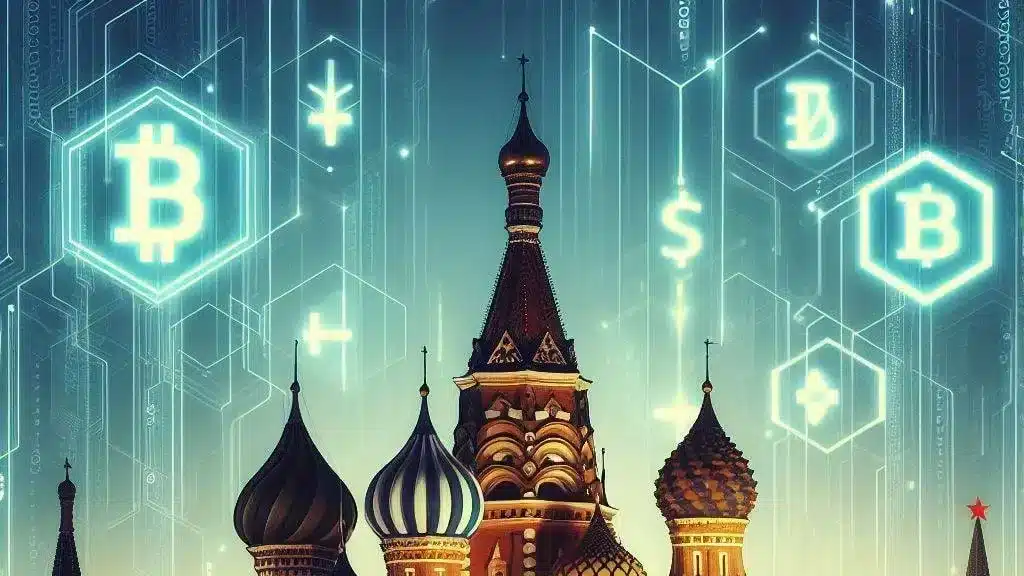
Russia finds itself at a crossroads, grappling with the intricate web of cryptocurrency regulation. With decision-makers in the nation prioritizing other pressing matters, the eagerly awaited framework for crypto oversight may not materialize until 2025, according to recent reports.
Anatoly Aksakov, Chairman of the State Duma’s Committee on the Financial Markets, acknowledges that the legalization of cryptocurrencies within the Russian Federation is inevitable, asserting that it’s only a matter of time. However, the timeline for the adoption of corresponding bills seems to have been pushed back, leaving stakeholders in a state of uncertainty.
The delay comes at a critical juncture, as the global community closely watches Russia’s stance on crypto regulation. Amidst concerns raised by German Neglyad, the Deputy Head of Rosfinmonitoring, urging expedited regulatory rollouts, the nation’s compliance rating with the Financial Action Task Force (FATF) faces scrutiny. With FATF downgrading Russia’s compliance ranking for crypto regulation from “compliant” to “partially compliant,” the urgency for regulatory clarity becomes palpable.
Russia’s internal discord over crypto regulation further complicates matters. While the Central Bank advocates for a blanket ban on cryptocurrencies, other key ministries, including energy and finance, advocate for regulation coupled with taxation. This schism has led to a prolonged stalemate, with implications reverberating across various sectors.
Notably, Russian companies are already leveraging cryptocurrencies as a payment mechanism in international trade, bypassing traditional financial channels. Despite lacking legal status, the crypto mining industry in Russia flourishes, contributing to the nation’s economic landscape. However, the absence of regulatory oversight exposes crypto exchanges to vulnerabilities, posing risks to investors and businesses alike.
The burgeoning peer-to-peer (P2P) market in Russia further underscores the need for regulatory clarity. Reports suggest a significant uptick in P2P crypto transactions, indicative of growing public participation in the digital asset space. Surveys indicate that a sizable portion of the Russian population, particularly those aged 22 to 44, have invested in cryptoassets, highlighting the widespread adoption of digital currencies.
Against this backdrop, the Russian government faces mounting pressure to expedite the regulatory process and address the burgeoning crypto ecosystem comprehensively. Failure to do so not only jeopardizes domestic market stability but also impacts Russia’s standing in the global financial arena.
As stakeholders await decisive action from policymakers, the uncertainty surrounding Russian crypto regulation reverberates throughout the global market. Investors and businesses navigate a landscape fraught with ambiguity, with regulatory clarity serving as a catalyst for market confidence and stability.
The urgency for crypto regulation in Russia was underscored by German Neglyad, Deputy Head of the anti-money laundering regulator Rosfinmonitoring, who urged the Kremlin to expedite the process. Concerns about compliance were further highlighted by a downgrade in Russia’s Financial Action Task Force rating, signaling the need for swift action.
Despite repeated attempts, Russia has struggled to find consensus on crypto regulation. While some advocate for a blanket ban, others, like the energy and finance ministries, advocate for regulation and taxation. This deadlock has created uncertainty in a landscape where domestic companies are already embracing cryptocurrencies for international trade, and crypto mining thrives without legal status.
With crypto exchanges operating largely unregulated and the peer-to-peer market expanding rapidly, Russia’s delay in regulating cryptocurrencies could have far-reaching consequences. Reports indicate that a significant portion of the population, particularly those aged 22 to 44, are involved in cryptoasset ownership, further underscoring the need for clear guidelines.
In a rapidly evolving digital economy, the implications of delayed regulation extend far beyond Russia’s borders. The interconnected nature of the crypto market underscores the need for collaborative efforts to establish a coherent regulatory framework that fosters innovation while mitigating risks.
As the world watches Russia’s regulatory trajectory, stakeholders brace for the ripple effects of delayed action. The fate of the crypto market hangs in the balance, contingent upon decisive steps from Russian policymakers to navigate the complexities of digital finance in a rapidly changing landscape.
Get the latest Crypto & Blockchain News in your inbox.